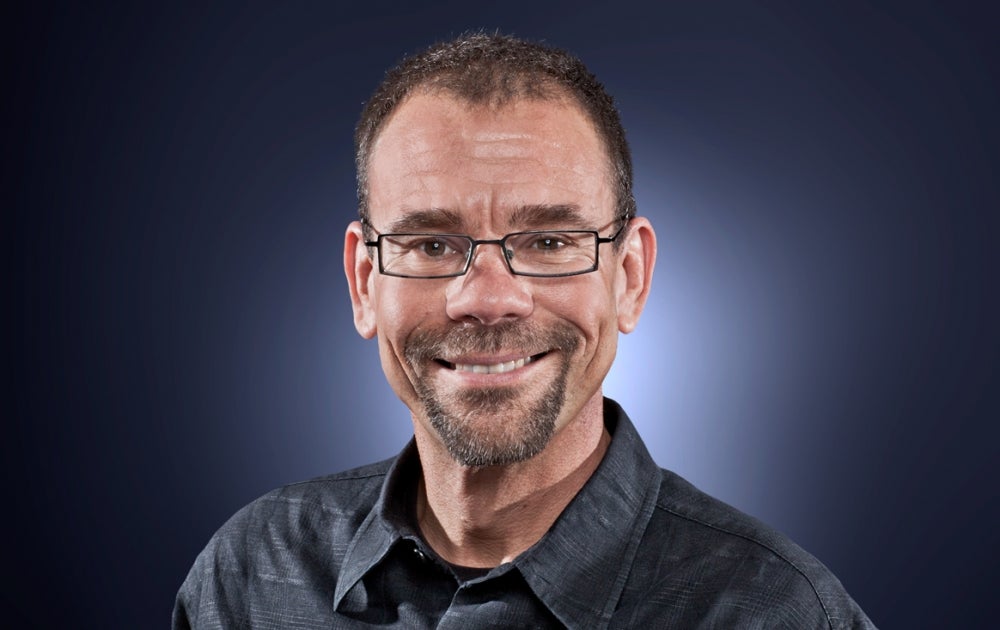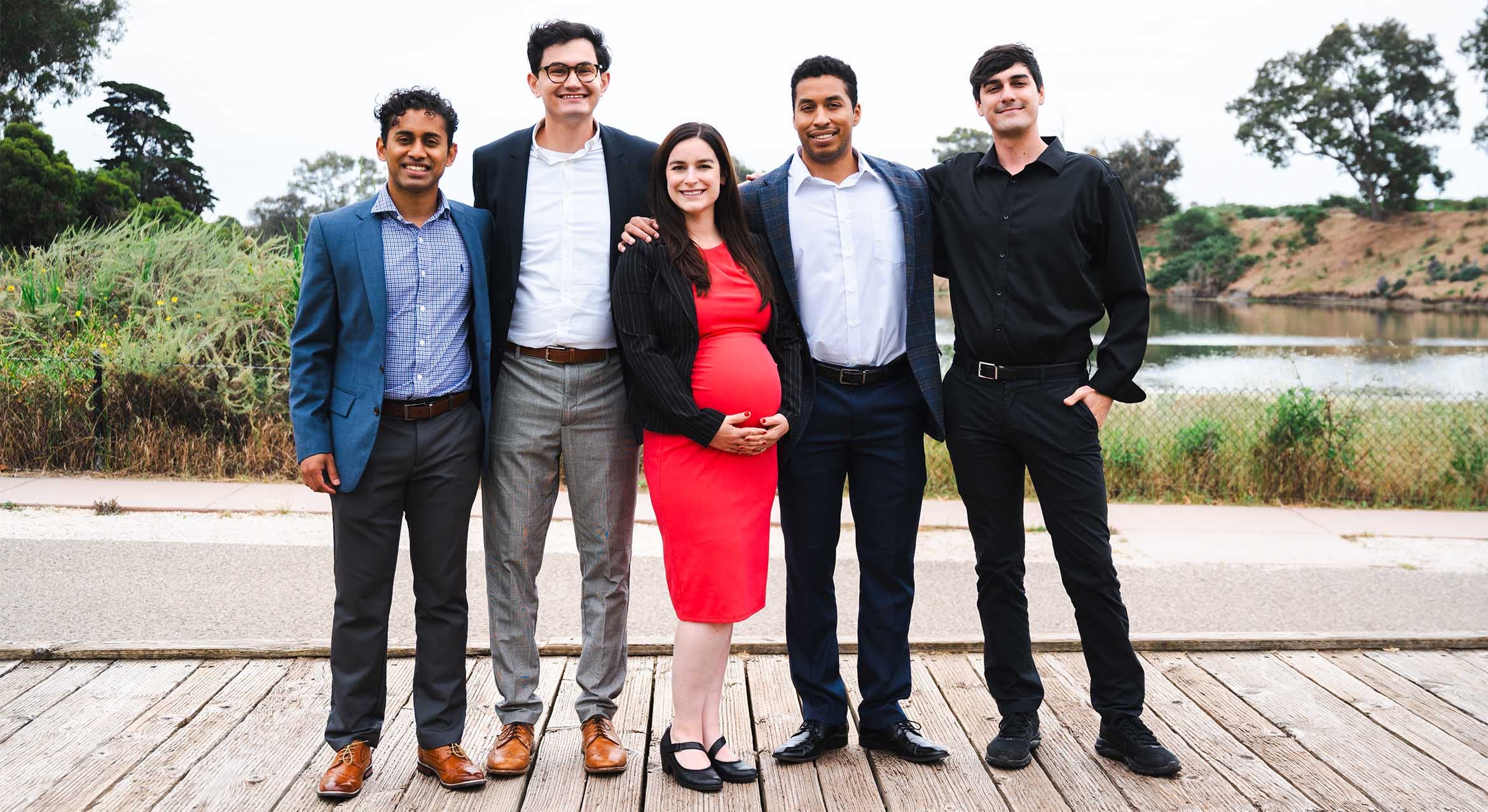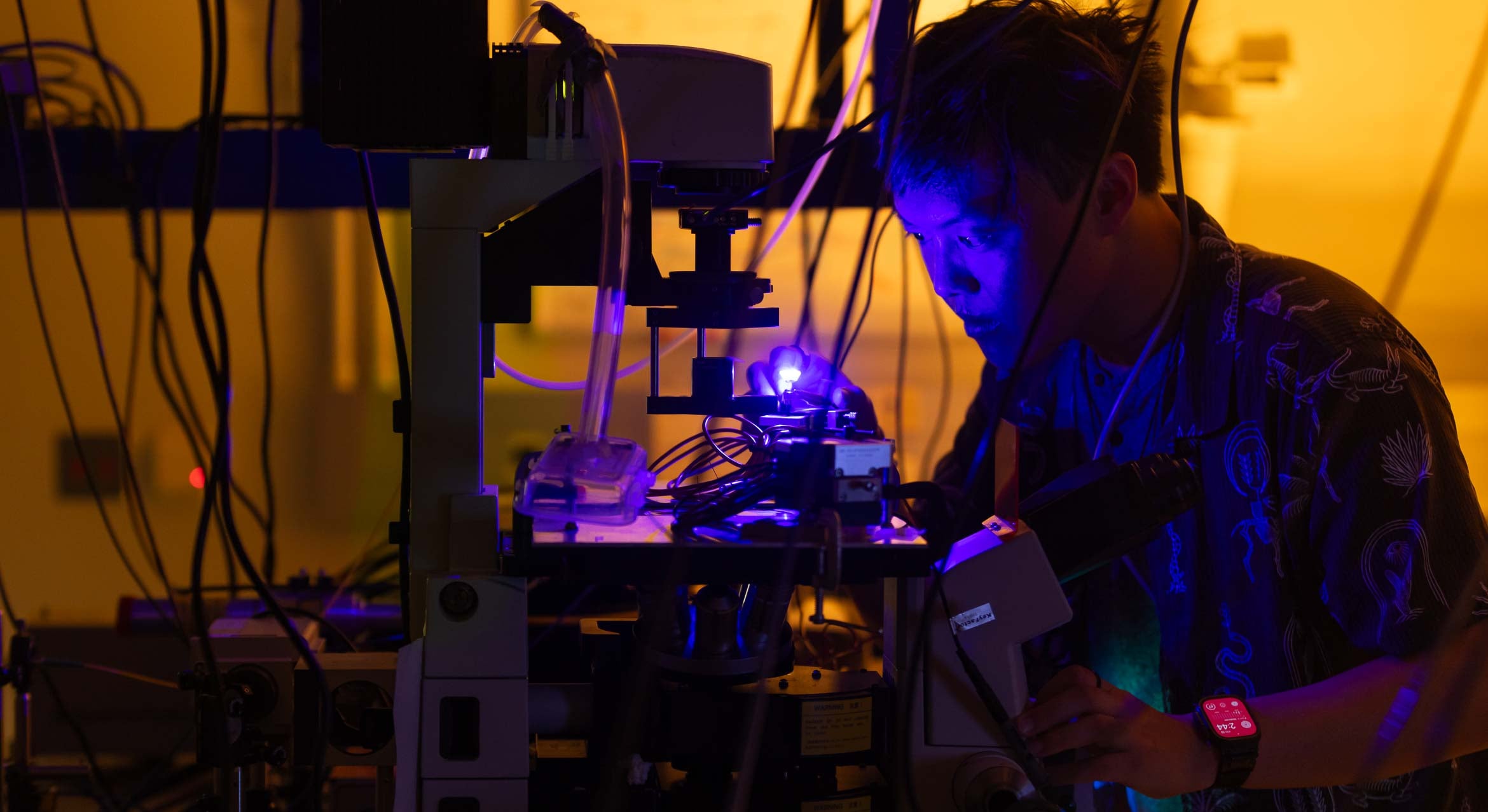
‘Vision and Commitment’

Currently, data centers consume 1.5 percent of global energy use. A 1,000-fold increase in the volume of data is predicted by 2025, with only 25-fold growth in computing efficiency expected over the same period. That’s a big gap.
Researchers at UC Santa Barbara’s Institute for Energy Efficiency (IEE) are working to bridge the looming imbalance by pursuing solutions that reduce the energy use associated with cooling loads, inefficient server use and wasteful computer processes. Among those investigators is Rich Wolski, a professor of computer science at UCSB and now, the campus’s inaugural holder of the Duval Family Presidential Chair in Energy Efficiency.
Wolski today was formally installed in the endowed position established with a gift from UC Santa Barbara Foundation Trustee Glenn ’80 and Bettina Duval. Matching funds were provided by the University of California for this important new chair.
“Bettina and I are excited to be able to make a small contribution to a better, more energy efficient future,” said Glenn Duval, a trustee since 2012. “We firmly believe that utilizing all energy more efficiently will allow mankind to continue economic growth into the future while providing for a more sustainable, ecologically sound, cooler planet. We view this contribution as an investment in our children’s future and we encourage others to follow a similar path.”
“We are deeply grateful to Glenn and Bettina Duval for their vision and generosity to establish the Duval Family Presidential Chair, as well as for their involvement across our campus, including their roles as parent leaders and Glenn’s advocacy and stewardship as a UC Santa Barbara Foundation trustee,” said UCSB Chancellor Henry T. Yang. “We also thank President Napolitano for her support from the Presidential Match to add prestige to this chair.
“This chair will help further enhance our campus’s leadership role in research, teaching, and public service in energy efficiency,” Yang continued. “We are pleased to honor Professor Rich Wolski as our inaugural holder of this chair for his outstanding achievements in energy efficiency computing.”
Glenn Duval is president and CEO of Challenger Cable Sales; Bettina is founder and president of California List, a political action committee to elect women in California. The UC runs in their family. Glenn earned his degree from Santa Barbara; Bettina earned hers from Berkeley. Three of their four children have followed suit: son Bennett graduated from UCSB and daughter Annie from Cal, where younger son Christopher is now a student.
Together the Duvals served as chairs of the UCSB Parents Fund from 2009-2011, and — over decades of involvement with the campus — they have made many significant investments in UCSB. The Duval Family Fund for Undergraduate Education provides annual scholarships for students with academic promise who are participating in a research or honors program. They also have supported men’s volleyball (Glenn played for the Gauchos during his UCSB years).
Now, thanks to their new gift, the endowed Duval Family Presidential Chair in Energy Efficiency will bolster the university’s ability to recruit, retain and honor its most preeminent faculty with a deep commitment to teaching, research and programs.
As the inaugural appointee to the chair, Wolski affirmed his hope that the position will “serve as a catalyst for greater cross-disciplinary research achievements for IEE and for UCSB.”
“The Duval Chair is both a deeply appreciated honor and a tremendous opportunity,” Wolski said. “The Institute for Energy Efficiency at UCSB is a pioneering institute, bringing together what can only be described as world-leading researchers from a variety of disciplines to focus, collectively, on the critical problems of energy efficiency. To be recognized as playing a role in that cohort is more than I could hope for as an honor and as validation for the research that we do. It is also an opportunity because it will help me to increase visibility into what modern computer science can do to increase energy efficiency to other related research communities.”
Wolski’s research interests lie mainly in cloud computing, computational grid computing for performance and parallel and distributed systems. And he brings it all to bear at IEE, where his work plays a crucial role in advancing on key energy efficiency challenges, according to the institute’s director, John Bowers.
“Rich has been a leader in our data center energy efficiency research, and has led that solution group at the Institute for Energy Efficiency,” said Bowers, also a UCSB distinguished professor of electrical and computer engineering. “Data centers are growing very rapidly, so it is essential to minimize energy costs and the impact on their environment. Rich’s research is important to solve this problem.”
Working with the Greenscale Center for Energy-Efficient Computing, Wolski is restructuring computations to be more energy aware through virtualization technology. His other endeavors include the Network Weather Service, a distributed system that periodically monitors and dynamically forecasts the performance that various network and computational resources can deliver over a given time interval; EveryWare, a toolkit for building high-performance globally distributed programs; and G-Commerce, market-based resource allocation strategies for the grid. He also is the progenitor of Eucalyptus, an open-source cloud project that he successfully commercialized as Eucalyptus Systems, Inc.
Applying his expertise to sustainability more broadly, Wolski co-directs, with UCSB computer scientist Chandra Krintz, efforts to create efficiencies and opportunities for farmers, resource managers and ecologists. Their project SmartFarm is enabling more sustainable farming practices by way of their open-source, hybrid cloud program for agriculture analytics. Newer initiative Where’s The Bear saves time, money, energy and carbon footprint by using machine learning to identify and classify wildlife images captured on camera traps — and then processing the data mere yards from where it was collected.
“Our work is grounded in the empirical validation of computer scientific results when they are applied to ‘real world’ energy efficiency problems,” said Wolski, who joined UCSB in 2001. “Engaging the ‘real world’ is what is essentially an abstract research discipline, and creates a plethora of challenges that the Duval Chair will help us to overcome. In particular, I believe the Duval Chair will enable us to target societal problems that are currently underserved by the current computer science technology ‘boom’ that is powering social media and e-commerce.”
Indeed, noted Rod Alferness, dean of the UCSB College of Engineering, Wolski’s new appointment speaks to the interdisciplinary and expanding role of computer scientists in addressing larger societal challenges.
“Warm congratulations to Professor Rich Wolski on being named to the Duval Family Presidential Chair in Energy Efficiency,” Alferness said. “As a computer scientist who uses computation to reduce energy consumption and secure an energy-sustainable future, Rich’s work, particularly at the UCSB Institute for Energy Efficiency, embodies the College of Engineering tradition of pursuing applied science in the interest of improving the world. This is a well-deserved honor.”
According to Wolski, that honor — and the generosity that established the position — makes possible advances with sweeping and exciting potential.
“Philanthropy like the Duvals’ enables a very important form of research,” Wolski said. “Particularly in a technology-driven discipline like computer science, advancing ‘the next big thing’ is a pursuit for which there are a number of supportive agencies. However, to truly step outside the mainstream and to look for ways to have impact beyond results that are supported by the headlines requires a special kind of visionary philanthropist.
“Our work focuses, deliberately, on areas of society where computer science can have a tremendous impact but, because there is not the popular and/or commercial interest, the opportunities may have been overlooked,” he added. “For example, it is relatively easy to find agencies willing to fund research into autonomous cars. But to investigate how to use the computational power behind the world’s biggest tech companies to improve the way we use energy to move water requires vision and commitment — and that the Duvals clearly have.”



